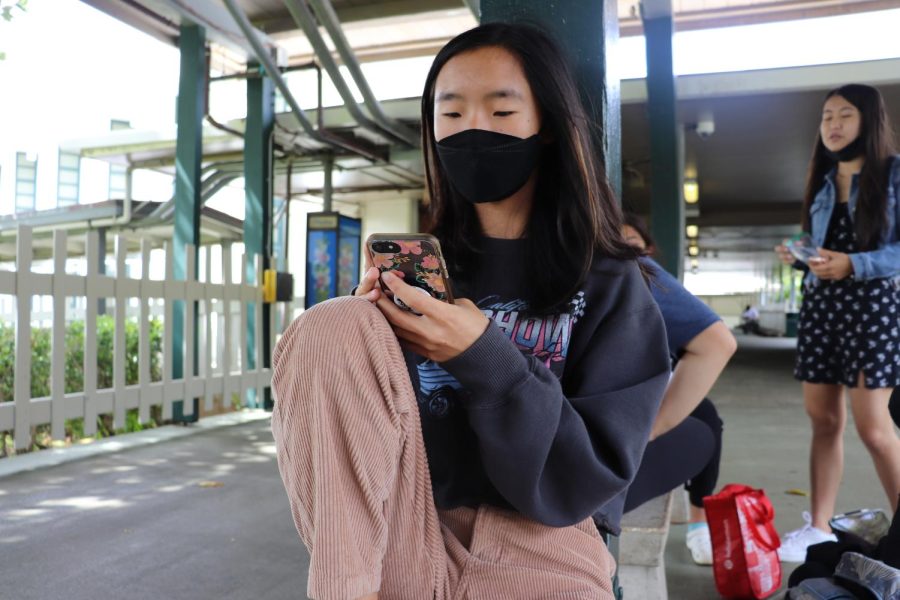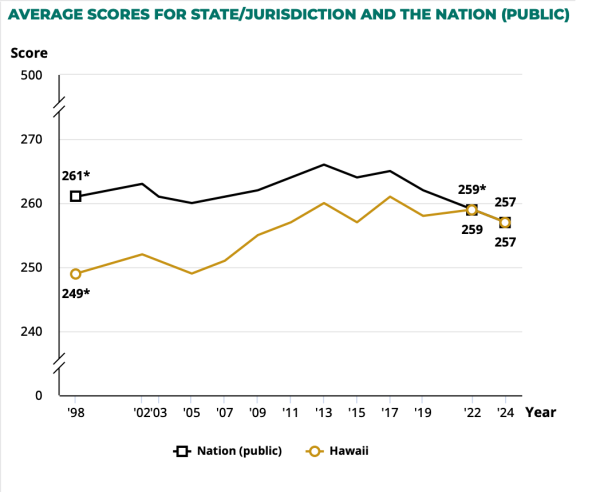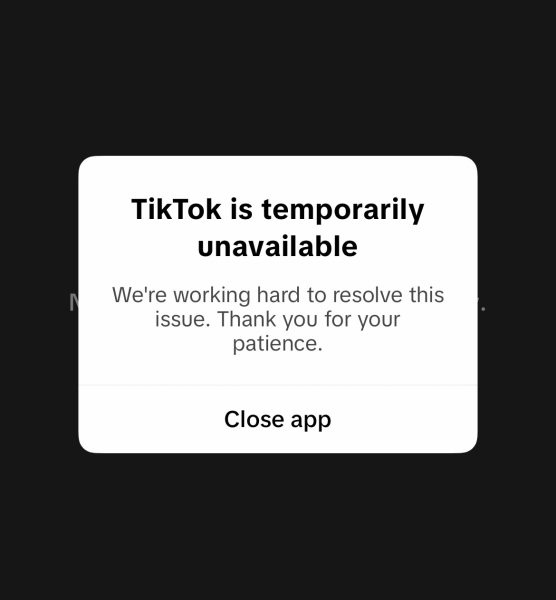New campus rules: the choice to mask outside
Freshman Krystta Horita chooses to wear her mask while outdoors, but others outside of Bakken decide to not wear their masks.
By Raymond King
Staff Writer
After two years of the world undergoing the COVID-19 pandemic, the restrictions on wearing masks have come to an end. Yet Mid-Pacific Institute still requires masks to be worn indoors.
Masks have been protecting people from Covid for a long period of time and Counselor Catherine Juliano says that she supports Mid-Pacific’s decision.
“I support the school’s decision to keep the mask mandate for staff and students in place. If someone is pregnant or has an immunosuppressed loved one at home, this is a way to protect our most vulnerable,” Juliano said.
This is due to private properties and businesses having the ability to create their own policies, which is why they continue the mask wearing policy.
According to NPR, business owner Stacy Glazier says that it’s her rule because she owns a private company. It makes no difference what the town or the state does; her rules are the only ones that apply.
Although some people believe that masks are what’s best for the community, sophomore Jonah Gillia stands against Mid-Pacific’s mask policy.
“It does not matter. Masking should be a choice,” Gillia said.
Since the beginning of the pandemic, people have been wearing masks. Now as the mandates drop, some people feel uncomfortable without one in certain scenarios.
“I can see myself becoming more nervous around people I speak to without a mask. I feel uncomfortable without the protection I have used for the past 2 years,” freshmen Kailey Holbrook said.
COVID-19 has made people unfamiliar with how others look and Gillia believes that this has affected and continues to affect people’s mental health.
“This could be devastating to younger children who need to see their teachers and peers unmasked to learn basic social skills,” said Gillia.
With new variants being frequently detected, the possibility of mask restrictions continuing next school year is a possibility.
“I would not recommend this idea, let masking be a choice, because we have so many tools to fight this virus such as vaccines, rapid tests, and even digital practices. We have to start thinking about more important issues, like the mental health of the students, and making sure every student can learn how to be responsible,” Gillia said.
Time and time again there is a crisis that countries, communities, and people come together to find a solution for.
COVID-19 has affected the world for three years now and Holbrook believes that people can’t live in fear.
“I feel comfortable with the new changes, even though I am slightly nervous, I feel like the normal ways of life have to come back eventually. We can’t live in fear forever,” Holbrook said.






